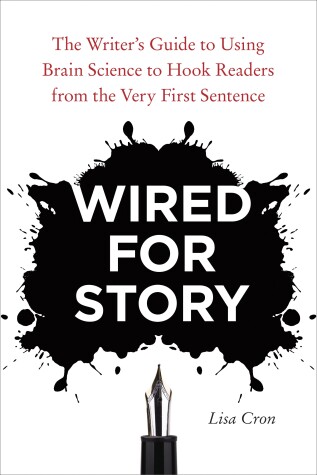
Amanda
Written on May 9, 2014
I find myself starting sentences with, "I just read this book, Wired for Story, and it said..." And that's because there's so much good information packed into this book.
Before a trip to the library to peruse writing books, I hadn't heard of Wired with Story. I picked it up, read the tagline (the writer's guide to using brain science to hook readers from the very first sentence), and was sold. Using brain science to hook readers? YES.
A quick aside: While part of my teaching English as a second language education focused on teaching, much of it focused on how students acquired a second language. Knowing how students learned tells us how to teach. What the brain does with language is a big part of that.
I'm not unfamiliar with brain science, nor am I unfamiliar with scientific topics. Wired for Story isn't a scientific book, but it is non-fiction and it does use studies to make its points.
Humans need stories
We need stories because they help teach us about life without actually experiencing certain situations. Like telling tales around the fire, warning people of potential dangers.
But fiction isn't just about warning people away from danger. We use it to learn about dealing with other people and experiencing places and lives we'd never otherwise have.
When we read, we literally experience the same situation in our brains. If a character is eating, the parts of your brain associated with eating are active---just as if you were eating too. (Brings a new light to all those sex scenes, amirite?)
Wired for Story provides a framework for story construction
Once you understand how a person's brain processes stories, you can take that information to construct a story that'll hook readers. (Just like the book promises.) It does this on an overall level, a character level, a theme level, and a plot level.
I pulled out my notebook within the first chapter and started taking notes. I'm not a note taker. That in itself shows you how valuable this book is.
Wired for Story provides examples for each point, so you get an idea of what does or doesn't engage readers. It shares brain science secrets and how those relate to good story telling. (Like show, don't tell? It's not enough to show, you must show why.)
This book gave me a new way of looking at my characters and story, and I know I'll write a better book for it.
Wired for Story will change how you read stories too
Courtney Milan is a story telling genius. I've always liked her historical romances, but I picked up one of her books after reading Wired for Story and watched as she put everything the book talks about in action. It was brilliant.
And when it comes to writing, you must be a reader too. Understanding how other authors construct and build their stories are essential in understanding what works and what doesn't.
A few of my Wired for Story takeaways:
Stories are really about the characters, so make your readers interested in them from page one
Your character needs a defining life event that influences every decision they make in the book
Every piece of information matters---don't include irrelevant or unnecessary info
What seems obvious to you, as the author, isn't obvious to the reader---don't hold back on reveals; lead readers to the conclusion
Outlines can be as simple as character bios
Readers like to be "in the know" and engaged in figuring out what will happen next---give them whys
